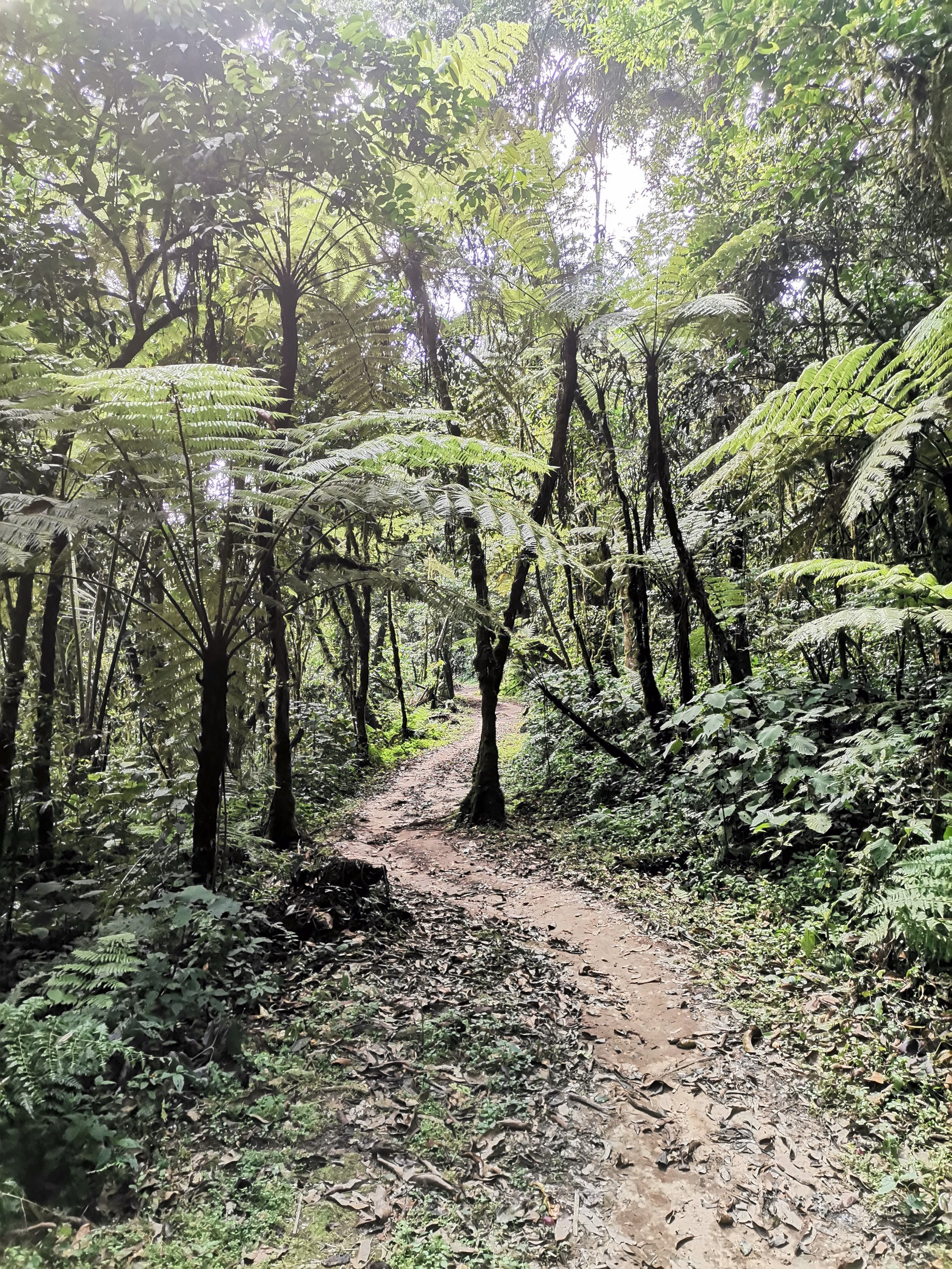
WATER AND REPRODUCTIVE HEALTH IN RURAL UGANDA
For women, the water crisis is personal.
Women living in Uganda’s most remote villages are responsible for finding water for their families to survive. Water is needed for drinking, cooking, sanitation and hygiene.
Women and children walk long distances to collect water, up to 2 miles per day, carrying jerrycans weighing up to 40 lbs. Women continue to walk long distances for water, even in pregnancy and immediately after giving birth. The walk for water takes priority over attending school, attending antenatal care, and recovering from childbirth.
If a woman is giving birth tomorrow, she will walk for water today. The walk for water is not optional.
In Nkuringo, Uganda, a village nestled in the mountainous jungle, the availability of water changes with the seasons. Here, access to water is not physical, but largely economic. Despite the lush green mountains, many women lack the knowledge and tools to make water accessible and useable.
In the dry season, the walk for water can take as long as two hours, as women and children must walk further to find a water source. In the wet season, heavy rains flood paths, making roads impassable. Even still, women and children will walk for water.
The walk for water is a “colossal waste of time.”* We’re on a mission to bring water closer in Nkuringo, for women, for children and the entire community.
*“UNICEF: Collecting water is often a colossal waster of time for women and girls” UNICEF https://www.unicef.org/press-releases/unicef-collecting-water-often-colossal-waste-time-women-and-girls, 29 August 2016

From 2022 – 2025, our project,“Thrive: Addressing Water and Reproductive Health in Nkuringo, Uganda”, will work to ensure women have the resources they need to thrive - from access to water, contraception and safe motherhood.
Resources to Thrive.
Water and women’s sexual and reproductive health and rights (SRHR) are vitally linked here in Nkuringo. While the task of collecting water is mostly left to women, women do not have access to the contraception they want and need. With large families of 7 or 8 children the norm, many women have an unmet need for contraception, and are unable to access lifesaving SRHR health services.
We are working to help give women the resources they need to thrive. We want to decrease the time children and women - especially women who are pregnant or recovering from birth - spend walking for water. We equally want to ensure women in Nkuringo have access to a healthy range of contraceptive options and the knowledge needed to efficiently time and space her pregnancies.
We’ve teamed up with partner organisations, Commonwealth Medical Trust (Commat) and Commonwealth Health Initiatives (CHI) Uganda, to supply Nkuringo with water tanks to store water for the dry season.
We are also working with Reproductive Health Uganda (RHU) to deliver lifesaving SRHR services including contraception through Community Outreach Services in Nkuringo, using our Outreach Tablets to put vital information into the hands of women and girls.
Our work with Uganda’s leading Makerere University is investigating how our work can improve access to water and ensure no woman is left behind in accessing SRHR, including contraception.

How we make change
-

Water
We will install water tanks to collect water for the dry season to be shared among the whole community.
-

Education
We will put health information into the hands of women and their families on safe motherhood, water and sanitation.
-

Health
We will work with local health authorities to deliver antenatal and primary health care to Nkuringo.
-

Women's Empowerment
We will work with women to give back that time - to go to school school, access healthcare and even earn an income.
Photo Credit:
Banner Image: SafeHands | Richard Huggard | Uganda | 2020
Bridge: SafeHands | Richard Huggard | Uganda | 2020
